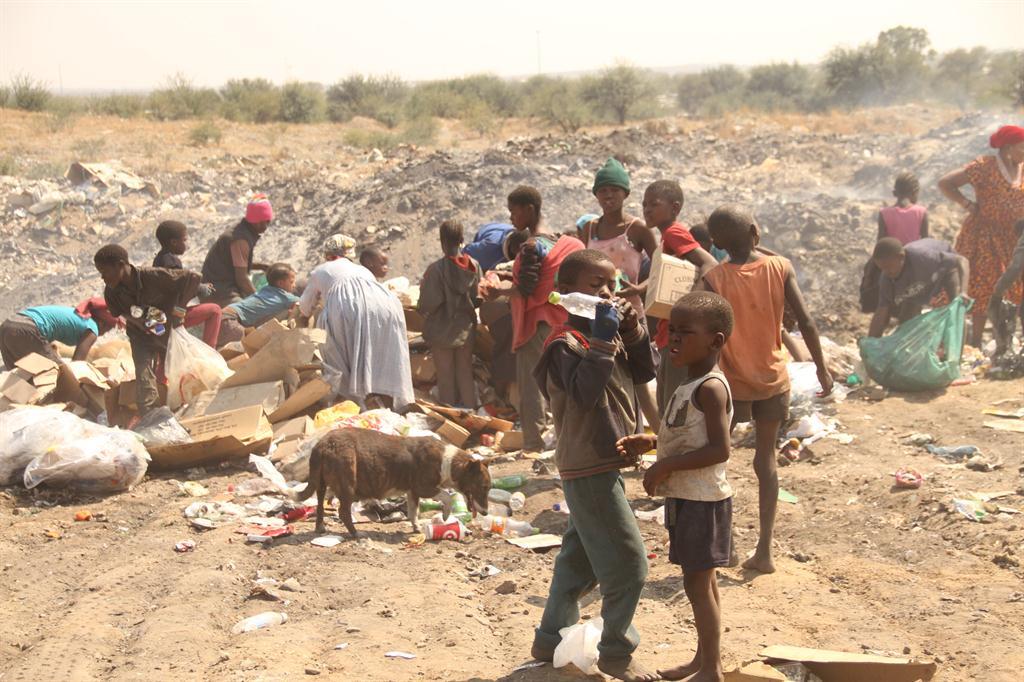Food insecurity on the rise
The World Food Programme says new solutions and strategies to transform food systems are needed.
ELLANIE SMIT
WINDHOEK
Due to the rising hunger and malnutrition in Namibia, there is an increasing urgency to address key drivers of food and nutrition insecurity in the country.
The World Food Programme (WFP) says this situation calls for the creation of sustainable livelihoods opportunities and building resilience among vulnerable communities through the implementation of new solutions and strategies to transform food systems.
This is according to the WFP’s latest country brief for Namibia.
In the last quarter of 2020, the WFP embarked on a Fill the Nutrient Gap (FNG) study which was designed to gain insights and develop strategies to address one of the direct causes of malnutrition.
Vulnerable communities
The final report is expected to be finalised this month and will enable the government to make informed policy decisions on the food security needs of vulnerable communities such as children under five years, pregnant and breastfeeding women, and adolescent girls.
Furthermore, the WFP is piloting a food assistance programme using vouchers in the Kunene and Ohangwena regions targeting 2 700 beneficiaries.
The programme was launched last month in partnership with the government through the Office of the Prime Minister.
The programme focusses on food insecure households severely affected by Covid-19, consecutive years of prolonged drought and locust outbreaks last year.
“A retail assessment was finalised in the two regions to determine the capacity of retailers and the feasibility for using vouchers as a transfer modality, prices variation as well as availability of commodities on the market.
“The results were conclusively positive for the voucher programme in all dimensions,” the WFP said.
School feeding
To diversify school meals, the WFP is supporting the government through the education ministry to pilot the Home-Grown School Feeding Programme (HGSFP).
It says a high-level inter-sectoral consultation meeting on HGSFP was held to orient senior government officials, developmental partners, and the academia on the HGSFP.
This resulted in enhanced national buy-in, as well as an establishment of coordination mechanisms to support the implementation of the programme.
According to WFP the piloting of the HGSFP in the country was due to commence in June.
“The pilot will ensure that schoolchildren receive diversified, nutritious school meals.”
WFP helped to develop nutritious cost-effective school menus for the HGSFP. These menus were adjusted to reflect geographical diversity and local preference, and integrated nutritious local foods.
WINDHOEK
Due to the rising hunger and malnutrition in Namibia, there is an increasing urgency to address key drivers of food and nutrition insecurity in the country.
The World Food Programme (WFP) says this situation calls for the creation of sustainable livelihoods opportunities and building resilience among vulnerable communities through the implementation of new solutions and strategies to transform food systems.
This is according to the WFP’s latest country brief for Namibia.
In the last quarter of 2020, the WFP embarked on a Fill the Nutrient Gap (FNG) study which was designed to gain insights and develop strategies to address one of the direct causes of malnutrition.
Vulnerable communities
The final report is expected to be finalised this month and will enable the government to make informed policy decisions on the food security needs of vulnerable communities such as children under five years, pregnant and breastfeeding women, and adolescent girls.
Furthermore, the WFP is piloting a food assistance programme using vouchers in the Kunene and Ohangwena regions targeting 2 700 beneficiaries.
The programme was launched last month in partnership with the government through the Office of the Prime Minister.
The programme focusses on food insecure households severely affected by Covid-19, consecutive years of prolonged drought and locust outbreaks last year.
“A retail assessment was finalised in the two regions to determine the capacity of retailers and the feasibility for using vouchers as a transfer modality, prices variation as well as availability of commodities on the market.
“The results were conclusively positive for the voucher programme in all dimensions,” the WFP said.
School feeding
To diversify school meals, the WFP is supporting the government through the education ministry to pilot the Home-Grown School Feeding Programme (HGSFP).
It says a high-level inter-sectoral consultation meeting on HGSFP was held to orient senior government officials, developmental partners, and the academia on the HGSFP.
This resulted in enhanced national buy-in, as well as an establishment of coordination mechanisms to support the implementation of the programme.
According to WFP the piloting of the HGSFP in the country was due to commence in June.
“The pilot will ensure that schoolchildren receive diversified, nutritious school meals.”
WFP helped to develop nutritious cost-effective school menus for the HGSFP. These menus were adjusted to reflect geographical diversity and local preference, and integrated nutritious local foods.





Comments
Namibian Sun
No comments have been left on this article